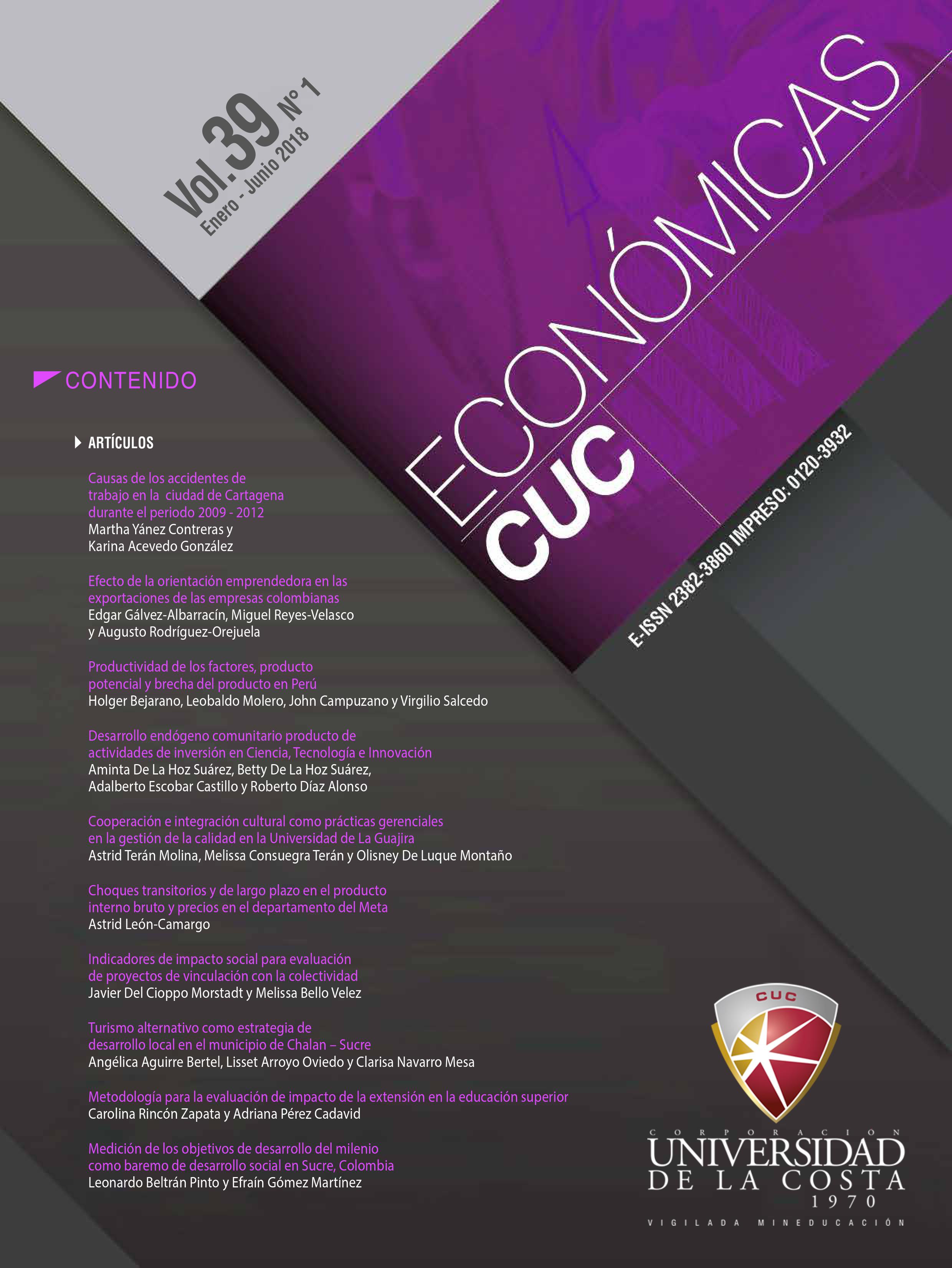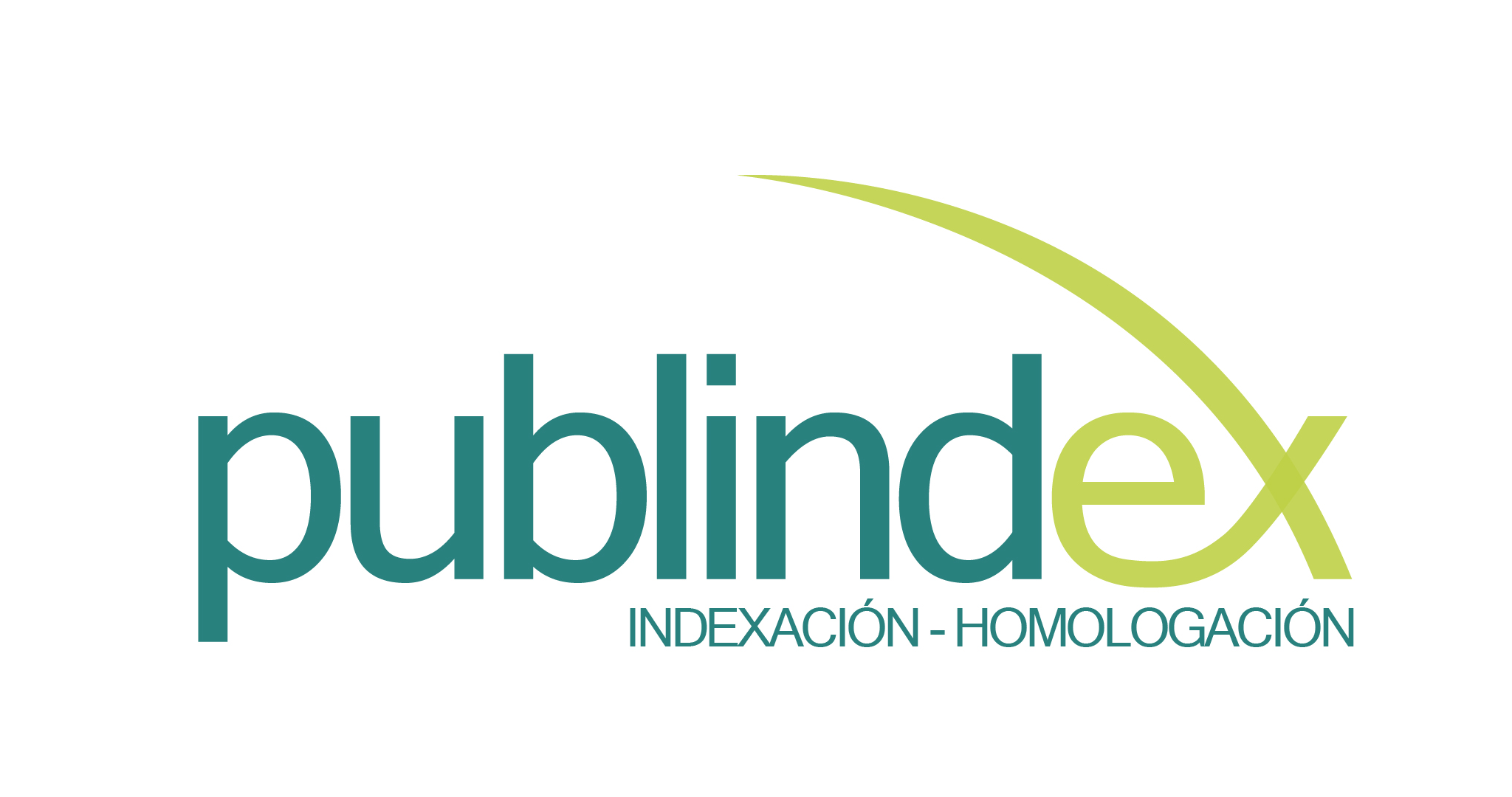Alternative tourism as a local development strategy in the municipality of Chalán – Sucre
DOI:
https://doi.org/10.17981/econcuc.39.1.2018.08Keywords:
Alternative tourism, local development, strategic planningAbstract
This article proposes the application of a methodology for the elaboration of local development strategies in underprivileged communities in the current context of globalization, but with the favorable conditions to contribute to the development from the use of their endogenous resources. Taking as a methodological reference the strategic guidelines that are developed in order to reach the proposed objectives from the identification of the vocation. Likewise, the results of each phase of the methodology applied to the municipality of Chalán in the Department of Sucre are presented, where alternative tourism is proposed as a local development strategy through the design of a tourism product that would lead to improving the socio-economic conditions of this community.
Downloads
References
Arroyo, L. (2017).Chalán munucipio destino turístico en el Departamento de Sucre: Diseño de un producto turistico 2017. [Tesis]. Universidad Tecnologica de Bolívar. Recuperado de http://biblioteca.utb.edu.co/notas/tesis/0070429.pdf
Becattini, G. (2002). Del distrito industrial marshalliano a la «teoría del distrito» contemporánea. Una breve reconstrucción crítica. Investigaciones Regionales, 1, 9–32.
Bringas, N. y Ojeda, L. (2000). El ecoturismo: ¿una nueva modalidad del turismo de masas? Economía Sociedad y Territorio, 2(7), 373–403. https://doi.org/10.22136/est002000436
Díaz, I. (2012). Turismo de aventura y participación de las mujeres en Jalcomulco. PASOS Revista de Turismo y Patrimonio Cultural, 10, 531–542. https://doi.org/10.25145/j.pasos.2012.10.068
Estados Unidos Mexicanos. Secretaría de Turismo (SECTUR). (2004). Turismo alternativo una nueva forma de hacer turismo. Serie Turismo Alternativo. México, D.F.: SECTUR. Recuperado de https://www.entornoturistico.com/wp-content/uploads/2017/05/Turismo-Al-ternativo-una-nueva-forma-de-hacer-turismo.pdf
FUA, G. (1988). The Balance between Industry and Agriculture in Economic Development. Londres: Mc Millan.
Ivanoba, A. y Ibañez, R. (2012). Tipologías y antecedentes de la actividad turística: turismo tradicional y turismo alternativo. En, Instituto Nacional de Ecología (Ed.), Medio ambiente y política turística en México, Tomo I (17–33). México, D.F.: Secretaria de Medio Ambiente y Universidad Autónoma de Baja California.
Osorio, M. (2010). Turismo masivo y alter-nativo. Distinciones de la sociedad-moderna/posmoderna. Convergencia, 17 (52), 235-260. Recuperado de http://www.scielo.org.mx/pdf/conver/v17n52/v17n52a10.pdf
Pérez, S. (2010). El valor estratégico del tu-rismo rural como alternativa sostenible de desarrollo territorial rural. Agronomía Colombiana, 28(0120-9965), 507–513.
Rubert, J. y Fuertes, A. (2003). La economia regional en el marco de la nueva economía. Castelló de la Plana: Universitat Jaume.
Sanchis, J. (1999). Las estrategias de desarrollo local: aproximacion metodologica desde una perspectiva socio-economica e integral. Revista de Ingenieria de Organización, 21, 146 –160. Recuperado de http://www.revis-tadyo.com/index.php/dyo/article/view/301
Silva, I. (2003). Metodología para la elaboración de estrategas de desarrollo local. Santiago de Chile: ILPES.
Solari, V. y Pérez, M. (2005). Desarrollo local y turismo: relaciones, desavenencias y enfoques. Economía y Sociedad, X, 49–64. Recuperado de http://www.redalyc.org/articulo.oa?id=51001603
Vázquez, A. (2009). Desarrollo Local, una estrategia para tiempos de crisis. Universitas Forum, 1, 1–11.
Vázquez, A. (2007). Desarrollo endógeno . Teorías y políticas de desarrollo territorial. Investigaciones Regionales, 11, 183 –210
Downloads
Published
How to Cite
Issue
Section
License
You are free to:
- Share — copy and redistribute the material in any medium or format
- The licensor cannot revoke these freedoms as long as you follow the license terms.
Under the following terms:
- Attribution — You must give appropriate credit , provide a link to the license, and indicate if changes were made . You may do so in any reasonable manner, but not in any way that suggests the licensor endorses you or your use.
- NonCommercial — You may not use the material for commercial purposes .
- NoDerivatives — If you remix, transform, or build upon the material, you may not distribute the modified material.
- No additional restrictions — You may not apply legal terms or technological measures that legally restrict others from doing anything the license permits.


 English
English
 Español (España)
Español (España)














